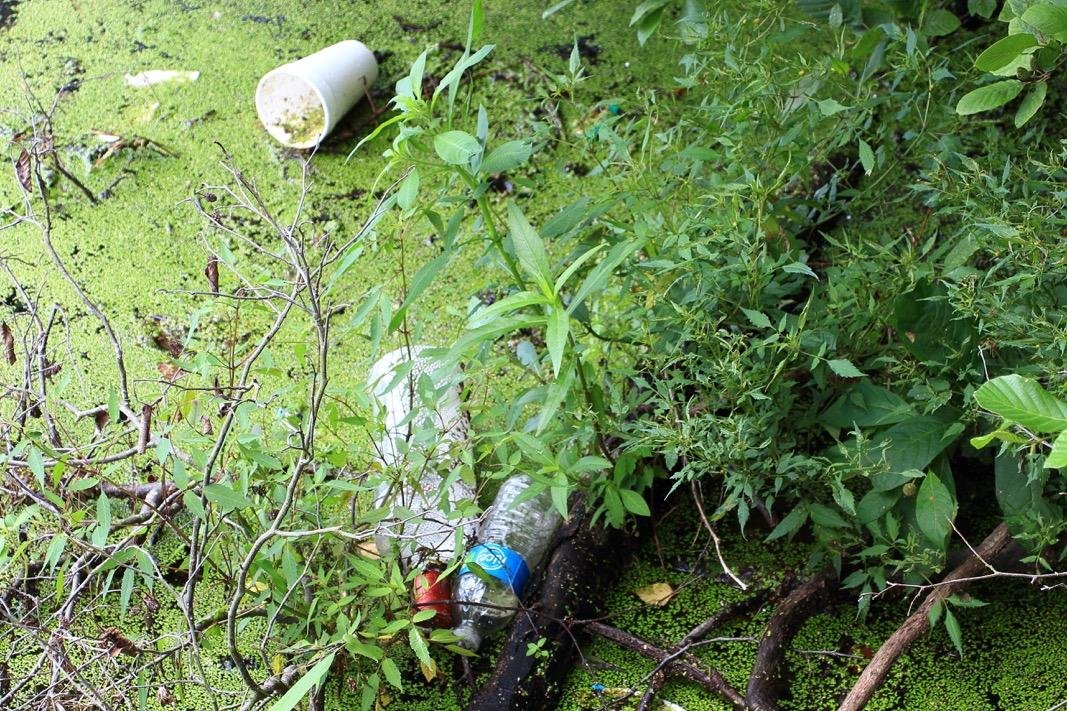You see it, you own it
tompol@earthlink.net
Back in 1999 things weren’t going well.
My boss called me into his office.
“If you see a problem, you own it,” he said.
Great advice. You see a piece of litter, you own it.
What …
This item is available in full to subscribers.
Subscribe to continue reading. Already a subscriber? Sign in
Get 50% of all subscriptions for a limited time. Subscribe today.
Please log in to continueNeed an account?
|
You see it, you own it
tompol@earthlink.net
Back in 1999 things weren’t going well.
My boss called me into his office.
“If you see a problem, you own it,” he said.
Great advice. You see a piece of litter, you own it.
What a blight plastic bottles and fast food containers are.
What sorry, lazy, no count people they are who toss litter out their window.
I police the road by my court and the highway by my late parent’s home.
I know what I’ll see: Plastic bottles, styrofoam containers, plastic tableware, napkins, straws, and plastic packets of condiments.
I hope there’s a place in Hell for whoever invented those packets. Much of the condiment remains in the packet.
I long for the days when you’d go into a restaurant and sit down to cloth napkins, stainless steel tableware, glass bottles of ketchup, and real salt and pepper shakers.
Those days are gone with the wind. A new wind blows plastic and paper all over the land and waterways.
Sure would be nice if we banned fast food restaurants’ use of plastic or restricted them to “to go” orders only. Bring back glass drink bottles with deposits, too.
You see a problem, you own it. That’s the approach Ken Leach and his anti-litter Star Fort Brigade task force take in Greenwood.
Ken, a retired forester, works with Keep Greenwood County Beautiful (KGCB) and other organizations such as the SC Forestry Association, SC DNR, and Lander University’s Environmental Studies Student Organization (ESSO) to do just that.
In fact, ESSO and KGCB are partnering to build on Ken’s efforts.
“We occasionally had issues with dumping on remote roads or at gates,” said Ken, “but we didn’t have the extensive litter across the state like we do today.”
Ken and his wife Robin policed and analyzed .4 of a mile of roadway and found: 19 cups, 267 plastic drink bottles, 23 plastic bags, 117 “other plastic litter,” 60 aluminum cans, 48 glass bottles, 10 paper cups, 2 paper pates, 44 paper bags, 21 foam fast-food containers, 50 foam cups, 1 foam packing container, and 45 miscellaneous pieces of litter. That wasn’t even half a mile.
Ken’s attributes the problem to changes in society.
“Rural communities have declined, and fewer rural schools anchor smaller communities. Old community patriarchs have passed on and younger folks just don’t seem to care.
“Mom and pop stores, a source of community pride, have all but disappeared. Families have fallen apart in towns, cities, and the countryside. No values are being instilled in our youth.
“Convenience stores have proliferated, offering a banquet of items to consume while driving, with litter simply tossed from the window. Fast food has taken over the sit-down lunch or family supper, leading to more paper, plastic, and foam items in roadside ditches.”
Ken cites other contributing factors. “The days of the county inmate work crew are about over. Counties have a list of reasons not to pursue them such as liability, inmate’s rights, and lack of money for supervising work crews. No one is accountable for correcting the deplorable state of affairs.”
People have more stuff than ever to toss out the window but fewer people pick it up. As Ken so rightly says, “All sane people are fed up with litter.” Stay tuned for Part II.
Keywords
down southOther items that may interest you







Comments
No comments on this item Please log in to comment by clicking here